Editor's note: This story is part of an occasional series on top community health issues, as identified by the Ozarks Health Commission.
A few years back, Kenny Lawson was hearing voices. David Jefferies was suffering with post traumatic stress disorder.
With nowhere else to turn, Lawson and Jefferies found themselves calling 911 or showing up at a local emergency room, seeking help.
“I was hearing voices and stuff. As long as I take my medicine, I’m fine,” Lawson said, recalling the time he wound up in an emergency room years ago. “A lot of people, they are the ones that are chronically homeless now because they are not taking care of their mental problems or addiction problems.”
Lawson said he turned to the emergency room because it was difficult — especially as a then-homeless person — to get an appointment with a mental health professional. The wait to see a psychiatrist is usually about six months, he said.
“So what are you supposed to do between that six-month period?” he said. “There’s nothing you can do.”
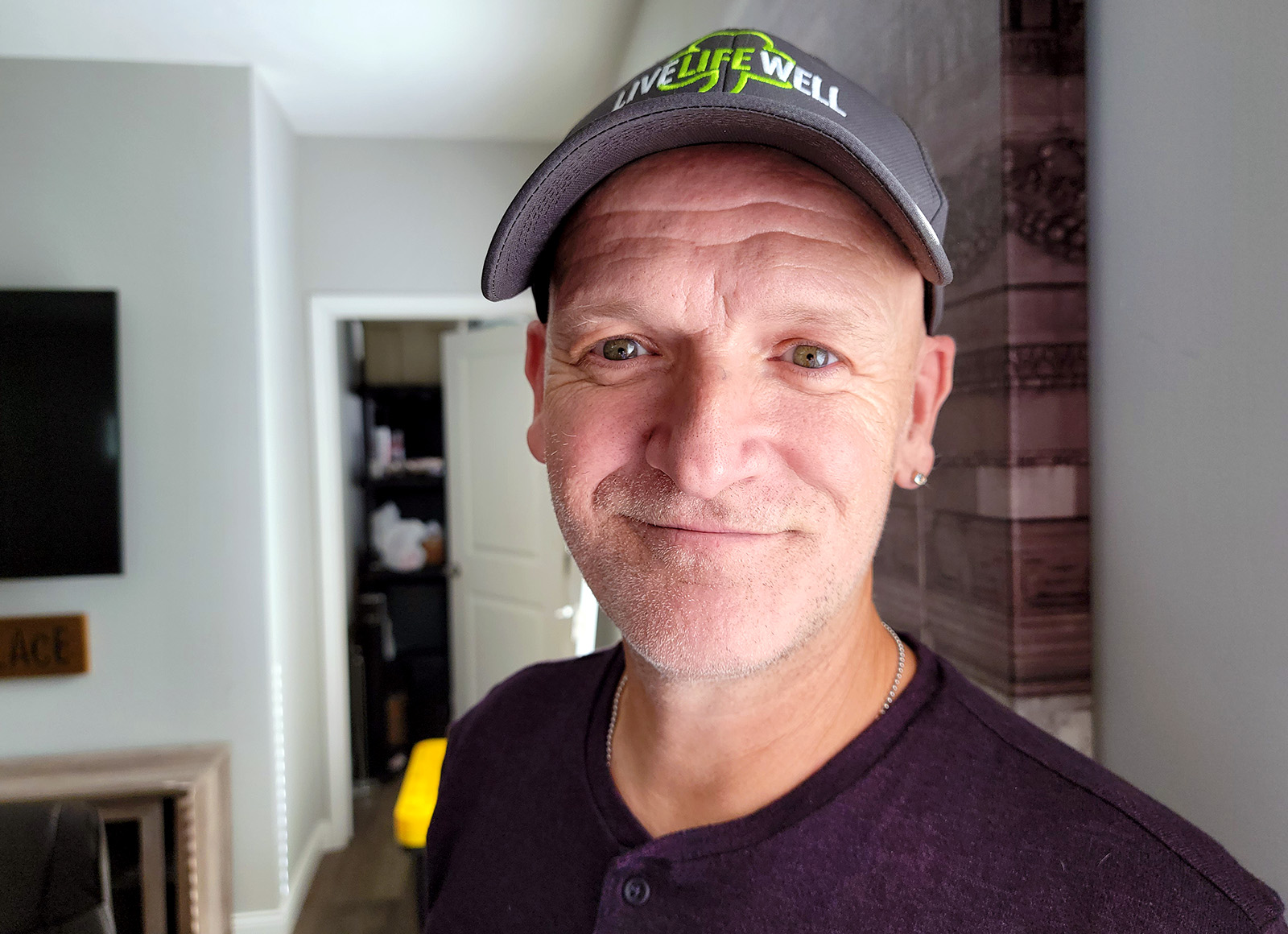
Jefferies wound up in an emergency room following an incredibly traumatic experience that left him suffering with PTSD.
“I did get some help,” he said of that emergency room trip. “I got referred to a therapist at Mercy who helped me overcome the trauma.”
Lawson and Jefferies are among the lucky ones. They got help and now have permanent housing in Eden Village, which has tiny home communities for disabled and chronically homeless individuals. Now that Lawson and Jefferies have permanent housing, their lives are more stable and they are surrounded by support.
Jefferies now finds peace and happiness through volunteering and helping his neighbors.
“I have my friends here,” Jefferies said. “Everybody pretty much helps each other.”
Lawson, too, finds happiness in being part of the Eden Village community, as well as tending to his 11 rose bushes that surround his tiny home.
“I’m glad I’m here,” he said, smiling. “It was a prayer that was answered.”
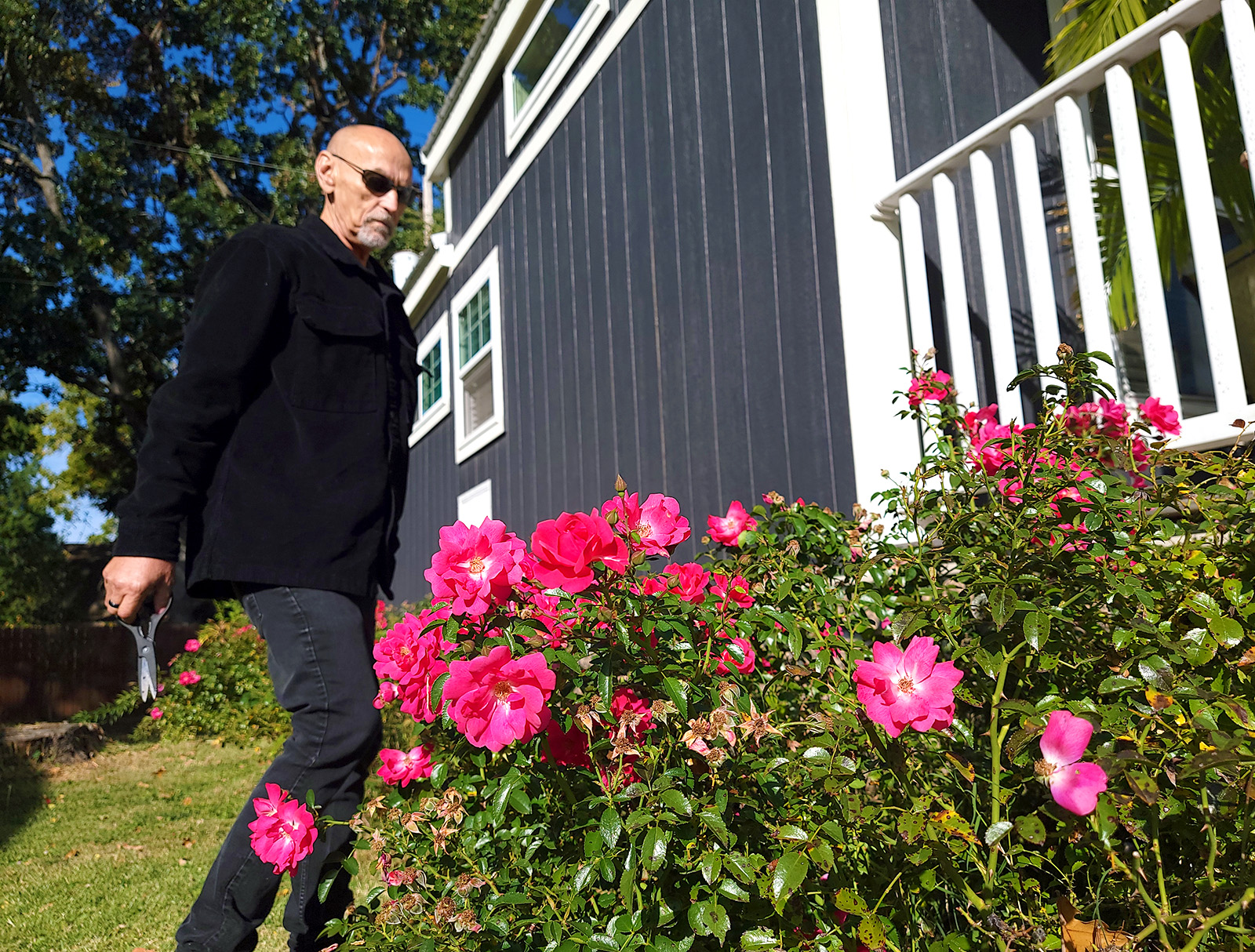
Throughout Springfield, collaborative efforts between law enforcement and the medical community are making a difference for people like Lawson and Jefferies. In just the past two years:
- A new center — open 24/7, 365 days a year — has opened downtown for adults experiencing a mental health or substance use disorder crisis. Early results are promising as people in crisis are stabilizing more quickly — calls to police for people in crisis are declining.
- A Co-Responder program is pairing a mental health professional to respond to calls with officers — or having the expert respond instead of police. In just three months, the program shows promise in helping to de-escalate situations involving people in crisis.
- Local medical providers are trying to reduce the number of people seeking mental health care in emergency rooms by giving people better access to mental health professionals in their regular doctor’s office or clinic.
Why care?
According to the 2022 Regional Health Assessment from the Ozarks Health Commission, 28 percent of all emergency department visits associated with an assessed health issue were due to mental health or substance use in the Springfield community. And the Greene County Jail has often been referred to as this community’s largest provider of mental health services due to the large number of inmates with mental health issues. But experts say these are both expensive options that usually do not lead to a person receiving the appropriate mental health care.
Diversion from jail and ER is key goal
In recent years, new programs and services have been created in Springfield to help people struggling with mental health issues and divert them away from emergency departments and jails.
Springfield Police Chief Paul Williams came up with an idea more than a decade ago to create a “place” where officers could bring people who are in a mental health crisis, rather than taking them to an emergency department or booking them into jail.
But it wasn’t until about three years ago, when Williams was talking about his idea with folks with the Healthy Living Alliance and the Mental Health Collaborative, that plans began to take shape.
Fast forward to today and Burrell’s Behavioral Crisis Center — Rapid Access Unit (often called the BCC) recently served its 4,000th client.
“This was a police department thing,” Williams said. “I wanted somewhere — a place my officers could take someone who is experiencing some mental health issues and they really don’t need to go to jail.”
The BCC opened in May of 2020 and is located at 800 S. Park Ave. It’s open 24/7 for adults experiencing a mental health or substance use disorder crisis.
The center was highlighted as a “blue ribbon” in the 2021 Community Focus Report because it addresses several of this community's “red flags,” including access to mental health care and enhanced resources for public safety.
“It kind of coalesced at that (Healthy Living Alliance/Mental Health Collaborative) meeting around Burrell saying, ‘Hey, we think we might have a location, a building that could be used,” Williams said, “Mercy and Cox hospitals saying, ‘Hey, we’d be happy to offer support in-kind.
“Then the county had just passed the law enforcement sales tax that previous November and there was $2 million allocated in there for mental health services,” he continued. “The county commissioners stepped up and provided a million dollars of that funding toward this effort. And we were able to create the (BCC) through Burrell and all those community partners.”
In Williams’ view, the BCC has been a “resounding success.”
A huge benefit for Williams’ department is the time savings for officers. Prior to having the BCC, an officer would spend anywhere from 2 to 6 hours handling someone with a mental health crisis, whether it was getting them to the emergency department at a hospital and then waiting for them to be seen or arresting them.
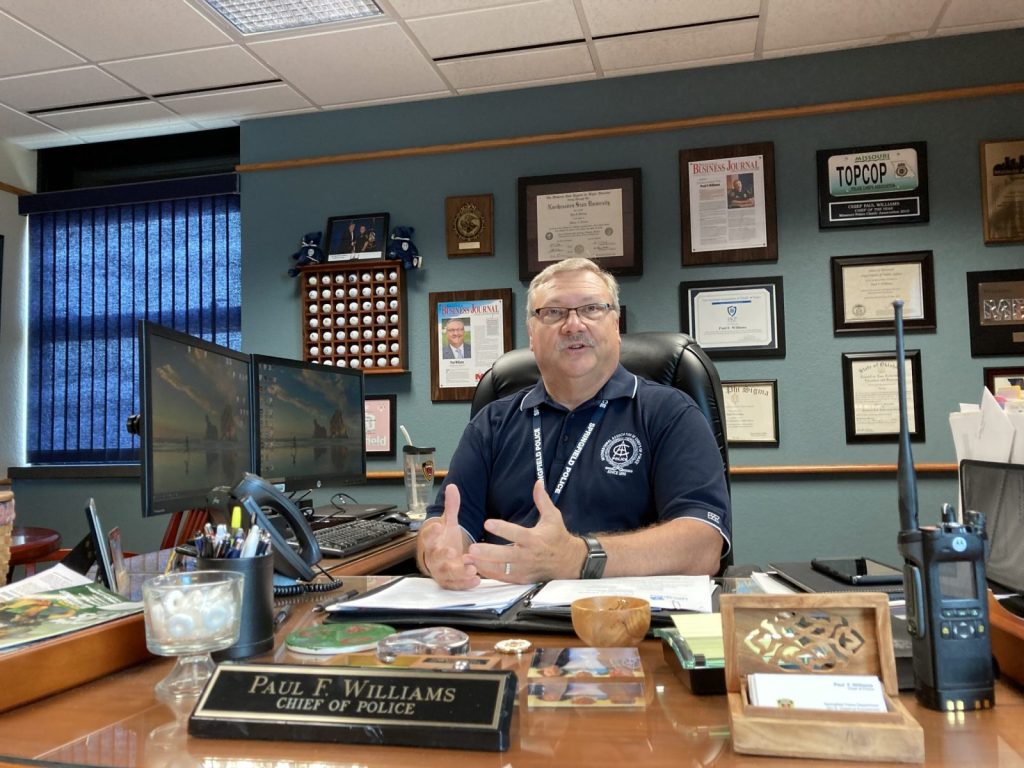
“That’s an officer being removed from the field, not being able to respond to calls, not being on patrol, not doing our primary function which is preventing or solving crime,” he said.
“They’re being booked in, they’re being held, they’re being released. They are taking up time at the Sheriff’s Office as well,” Williams said, “when really that’s not going to solve their problem.”
The average time it takes an officer to drop someone off at the BCC is less than 15 minutes, Williams said.
Law enforcement now partnering with mental health providers
This relatively new partnership between Springfield Police Department and Burrell Behavioral Health is leading to other programs aimed at cutting down the amount of time officers and first responders spend handling mental health situations.
A big shift in how local law enforcement approaches the issue happened 12 years ago when the police department and Greene County Sheriff's Office implemented Crisis Intervention Team Training. This is a 40-hour training course on how to recognize and respond to someone experiencing a mental health crisis and to know what appropriate resources are available.
While every SPD officer gets eight hours of Mental Health First Aid training, the weeklong Crisis Intervention Team training has been voluntary, Williams said.
That said, Williams is ramping up the program and now all new officers coming out of the academy will go through the Crisis Intervention Team (CIT) training.
“(CIT-trained) people are spread throughout the department. They can be called upon kind of like secondary responders,” he said. “If someone has a call and if they haven’t had that training and want someone with a little more experience, dispatch has that list and can send that officer over there.
“They’re able to better assess and connect with mental health professionals,” Williams said, “to try and determine if the person needs treatment services as opposed to going to jail or to the hospital.”
New Co-responder program already making impact
Springfield Police Department and Burrell Behavioral Health are in the process of building up a Co-responder Team program.
“It’s partnering up mental health professionals and law enforcement officers to respond to some of these calls, as opposed to just call 911 and having (an officer) show up,” Williams explained, “to de-escalate and handle that situation.”
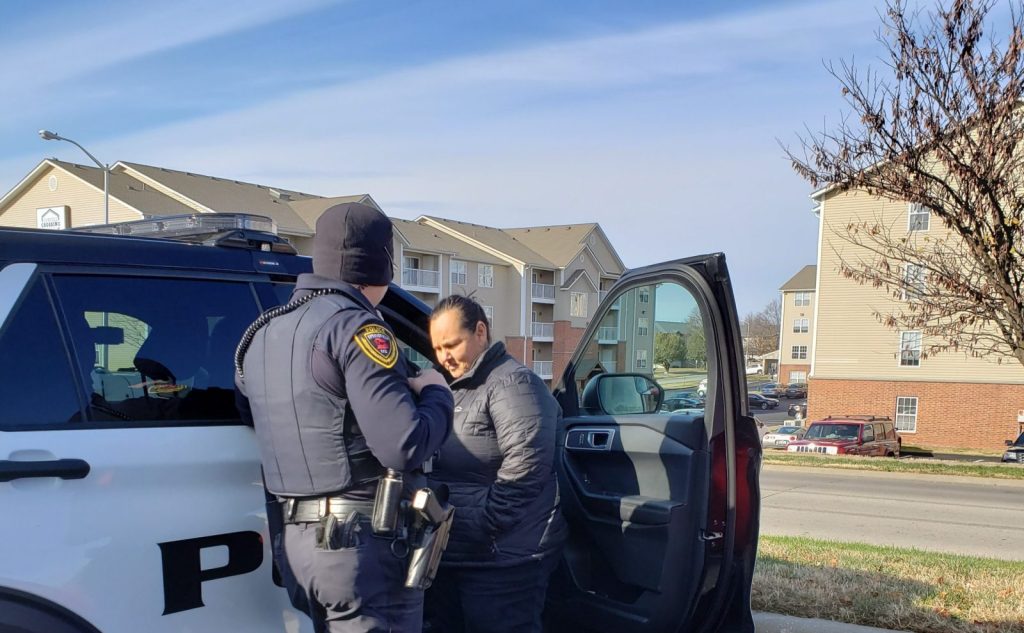
Sometimes the behavioral health professional rides along in the patrol car during the officer’s full shift. Other times, calls to 911 are diverted to the co-responder team.
And sometimes, the calls are diverted to just the mental health professional and police are not involved at all, Williams said.
This new partnership between Burrell and SPD of having a mental health professional respond to calls with officers or having them respond instead of officers is still very new.
“The emergency response team — when we have some mental health professionals that are out there riding with officers — we’ve been doing that since September,” Williams said.
“Also, Burrell established a 24-hour crisis line that dispatch can call (or) the officer can call to have a mobile crisis unit respond,” Williams said.
Williams called these different aspects of the Co-responder Team program “good companion pieces to the BCC.”
The plan is to grow the Co-responder Team program so that it’s happening more often.
Holli Triboulet, the project director for the new Co-responder Team program, said they are able to do the ridealongs about 20 hours a week at this time.
Her goal is to have dedicated teams of officers and mental health professionals who have regular shifts together.
“I think in six months, we’re going to be really just kind of a humming machine,” she said
Programs aim to break the crisis cycle
Dustin Brown is the chief operating officer for Brightli, the umbrella organization for Springfield-based Burrell Behavioral Health. Brown oversees the BCC at both an executive level and operational level.
According to Brown, people often wind up in the emergency departments or jail for reasons related to their mental health because they don’t understand or recognize what kind of help they need.
“For a lot of individuals, they’re not exactly sure what is the best help they need at the time, especially in the midst of a recovery crisis or mental health crisis,” Brown said. “It’s very difficult to say, ‘I know I need psychiatric help’ or ‘I know that I need recovery help.’
“Typically individuals will reach out to emergency responders who then don’t have the full range of training to know exactly what is needed in that moment,” he continued. “What happens is there are two options that emergency responders have in those situations — before the Crisis Center was open — and that’s either take them to jail or take them to an emergency department.”
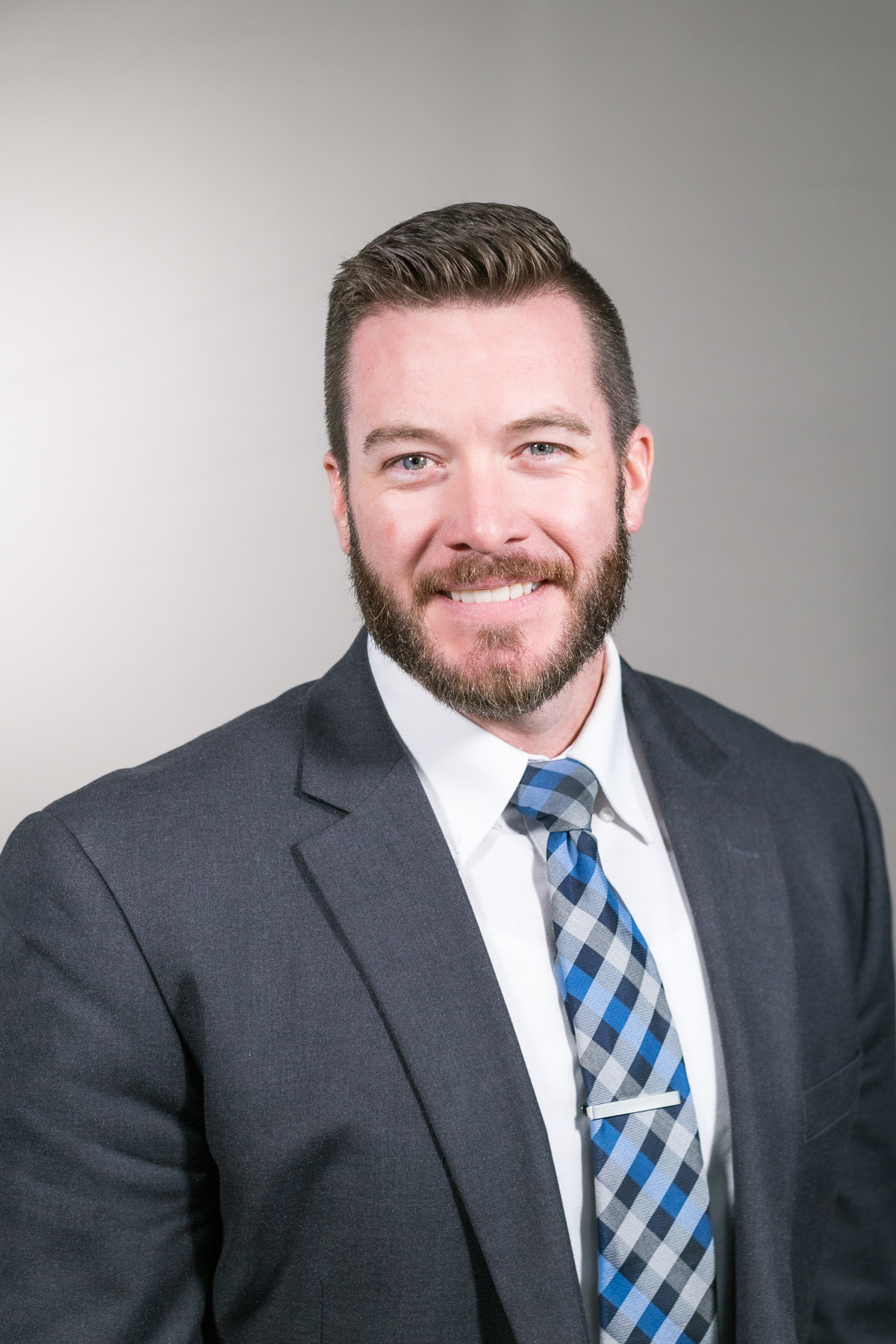
This leads to what is known as a crisis cycle that keeps repeating itself where those individuals only know to reach out to the one entity and that one entity takes them to that one space, Brown said.
“It’s an immense cost to the community, both in first responders’ time and police officer time,” he said. “Emergency rooms are incredibly expensive, especially if the person is uninsured or underinsured.
“We not only pack a full continuum of services into one location to help stabilize someone,” Brown said, “but we make sure that those services are also an entryway or an access point for outpatient services and the appropriate services after the fact.”
The BCC offers psychiatric services as well as walk-in medication assisted treatment (MAT) services for opiate addiction.
“We offer behavioral health services with licensed behavioral health care providers, medical care through our nursing and medical staff,” Brown said. “We have peer support services, which are individuals with lived experience that can help take a client and walk them through their own experience and what it’s like to enter treatment and really help engage them throughout the process.”
Brown emphasized that no appointment or referral is needed — just walk in.
“Less than 6 percent of the people that come through the door actually need to be transported for medical stabilization or for inpatient treatment. So we do a really good job of actually treating the individuals who come through the door as opposed to having them transport out,” Brown said. “We have a really good success rate of keeping people out of jail and out of the hospital.”
The cost savings from the BCC is significant, Brown said. According to the 2021 Community Cost Savings Analysis conducted by Burrell, having the BCC saved the community $5.7 million in diversion costs in 2021.
That estimate is based on the notion that if 20 percent of the people who came to the BCC would have gone to an emergency department or jail, it would cost about $5.7 million.
Surprising outcomes, results
Both Williams and Brown say there have been surprising trends and outcomes they didn’t anticipate when planning the BCC. And because of that, the BCC is a “living program” that is constantly adapting to the different needs, Brown said.
For example, they anticipated the BCC would be a large center for the uninsured and underinsured population, as well as the unsheltered population.
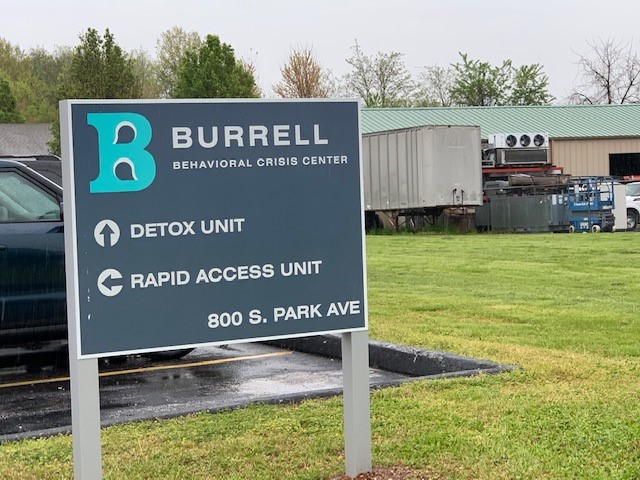
“But our services actually encompass people from all walks of life,” he said. “We’ve been surprised at the diversity of individuals that have used the center and so we’ve tailored some of the services to make sure that we can encompass anyone.”
The amount of time people need to spend at the BCC to get stabilized is on average much shorter than what they initially anticipated.
Patients can spend up to 23 hours of observation at the BCC.
“But what we really found is we’ve packed so many services into the location, that individuals start to feel better very quickly,” Brown said. “The vast majority of people that come through the door stay less than 12 hours. And of that, most stay four to six hours. So what we are seeing is we’re helping people stabilize and become safer and be able to go to a less restrictive environment much quicker than we anticipated.”
Law enforcement involvement decreasing
Another big surprise is that the number of people brought in by law enforcement is dropping rather than increasing. Brown said that is a good indicator that individuals are seeking help at the BCC instead of calling 911 or having to encounter law enforcement.
Williams, too, said he was pleasantly surprised by this.
“I envisioned this as it would be mainly utilized by law enforcement — we’d be the primary folks bringing someone in for drop off, and then second would be the emergency departments at our local hospitals,” Williams said.
About 25 percent of people referred to the BCC are coming from emergency departments. About 10 percent are being dropped off by law enforcement, Williams said.
“But the most amazing number for us is about 50 percent are self-referrals or walk-in or (brought) by family,” he said. “It’s people who acknowledge they need some help and are coming and getting that treatment.
“The numbers of people being seen and getting treatment and getting connected to services and doing the follow-up care is actually increasing every day,” Williams continued. “I think long term, it will see a huge decrease in the amount of contacts we have with folks suffering from those issues that really don’t need to interact with law enforcement.”
Setting the ‘gold standard’
Because the BCC has been such a success, Brightli and Burrell are replicating the model throughout the state.
“This really helped set the gold standard, the Springfield location, for all of the locations that are starting to open across the state,” Brown said.
A BCC recently opened in Columbia, and an Independence location will open in December.
“The state has also looked to us to say, ‘How can we serve youth and adolescents?’ So we had to secure some ARPA funding from Greene County Commission to break ground on a Youth Behavioral Crisis Center and Rapid Access Unit on the north side of town,” Brown said.
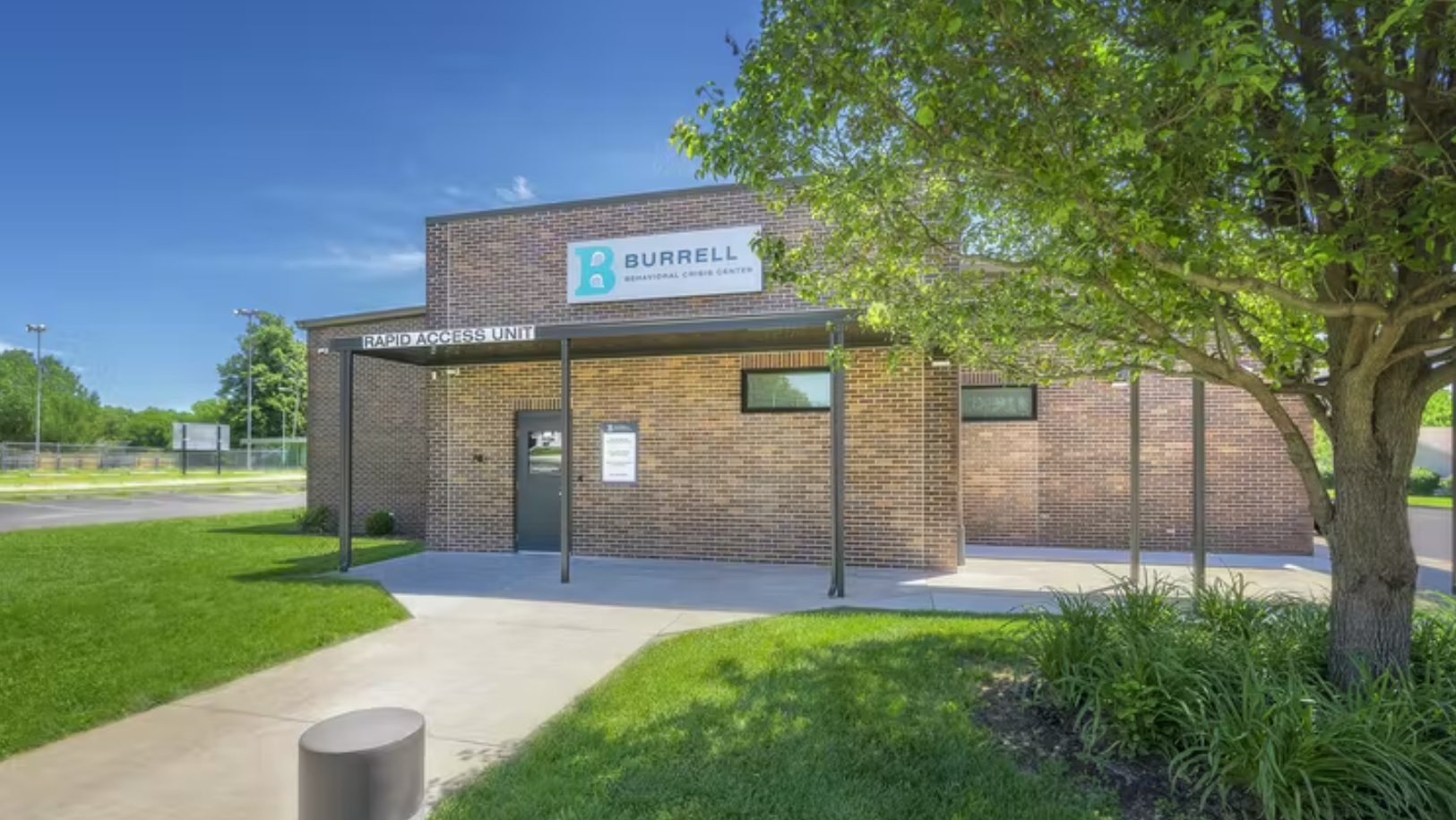
He estimated it will be another two years before construction is complete. The center will be for youth ages 12 to 17 at first, but will eventually be for ages 9 and up.
“We are really excited to bring this to younger populations as well,” Brown said.
Local hospital also looks for ways to divert people from the ER
Dr. Kyle John is a psychiatrist at Mercy Hospital in Springfield and is the Clinical Vice President for the whole Mercy ministry throughout Missouri, Oklahoma and Arkansas.
In John’s view, the only time a person should be in the emergency department for something related to their health is when they are in the throes of a schizophrenic break, a manic break or if the person is a danger to themselves or others. In those situations, they need to be medically screened and possibly admitted to a psychiatric unit, he said.
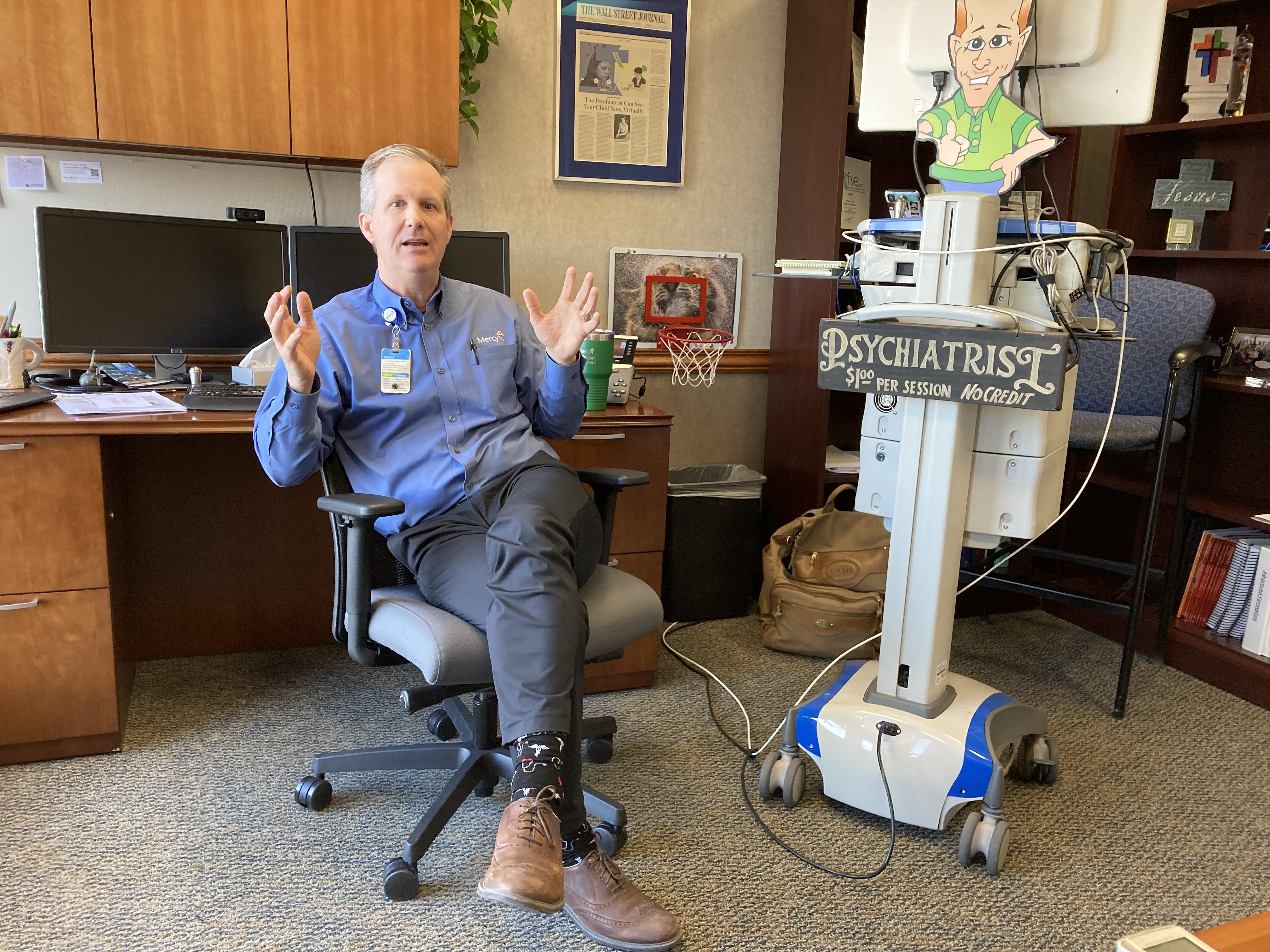
But for all other situations, the emergency room is the “absolute worst place” to receive behavioral health care, John said.
“ERs are set up for gunshots, heart attacks and strokes, motor vehicle accidents,” he said. “They are not necessarily designed to be a comfortable space for somebody who is having a mental health crisis.”
According to John, people wind up in emergency departments — and unfortunately jails, sometimes — for reasons related to their mental health because too often they don’t have access to “good quality mental health care upstream through their primary care provider or access through a behavioral health clinic that there is not a six month wait.”
John believes these issues stem from one simple fact: there are not enough mental health care providers.
“And that’s a whole other article about why don’t people go into behavioral health? Well, they don’t make as much money as other specialities,” he said. “It takes a long time to get trained and board certified — that’s a whole other part of our mental health crisis.”
Mercy brings mental health care to primary docs’ offices
One solution to keeping people out of emergency departments for mental health issues is to give them access to mental health professionals in their regular doctor’s office or clinic, rather than having their primary care doc make a referral to a mental health professional for an appointment six or more months in the future.
John and his colleagues at Mercy have been working to create the Collaborative Care program throughout the Mercy ministry so people can do just that.
By the end of this year, John said all of Mercy’s primary care providers, family medicine providers, internal medicine, pediatrics and women’s health care providers will have access to a psychiatrist and a behavioral health case manager virtually who can work with the patient and support them right there in the primary care setting.
“It’s not a referral out. It’s a ‘let’s bring the expert into the team,’” John said. “It’s really one of the more innovative, sustainable models so that when we say, ‘If you are having an issue with your mental health, go to your primary care provider,’ they are not going to turn around and say there’s a six-month wait. They are going to say, ‘You know what? I can handle this or I can bring in our collaborative team and they are going to meet with you tomorrow or today.’”
Because it would be pretty much impossible to hire that many mental health professionals and psychiatrists to cover the tri-state region, Mercy partnered with a vendor to bring in those experts.
“It’s really a very innovative, upstream program to treat as many patients as possible in their medical home — in their primary care office,” John said. “In my mind, it’s one of the most sustainable ways to really provide upstream access in an environment that most patients would prefer anyway.”
Need help?
- If you or a loved one is experiencing a mental health or substance-use crisis, call Burrell Behavioral Health’s toll-free 24-hour telephone line: Southwest Missouri: 1-800-494-7355; Central Missouri: 1-800-395-2132
- National Help Line: Call or Text 988
- The Behavioral Crisis Center, a walk-in crisis center, is open 24 hours a day, 7 days a week, 365 days a year. It is located at 800 S. Park Ave. This is a facility for people ages 18 and up.


